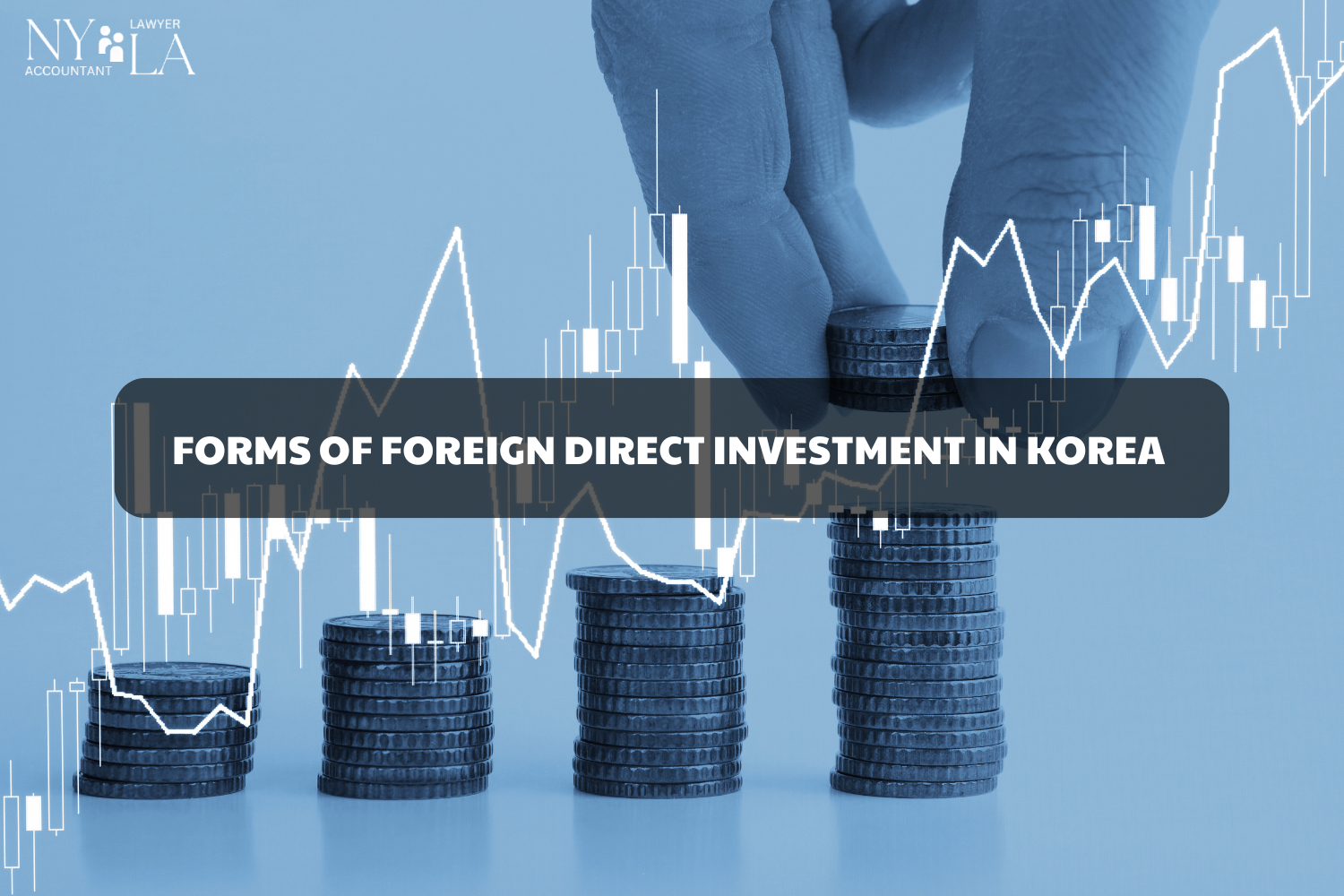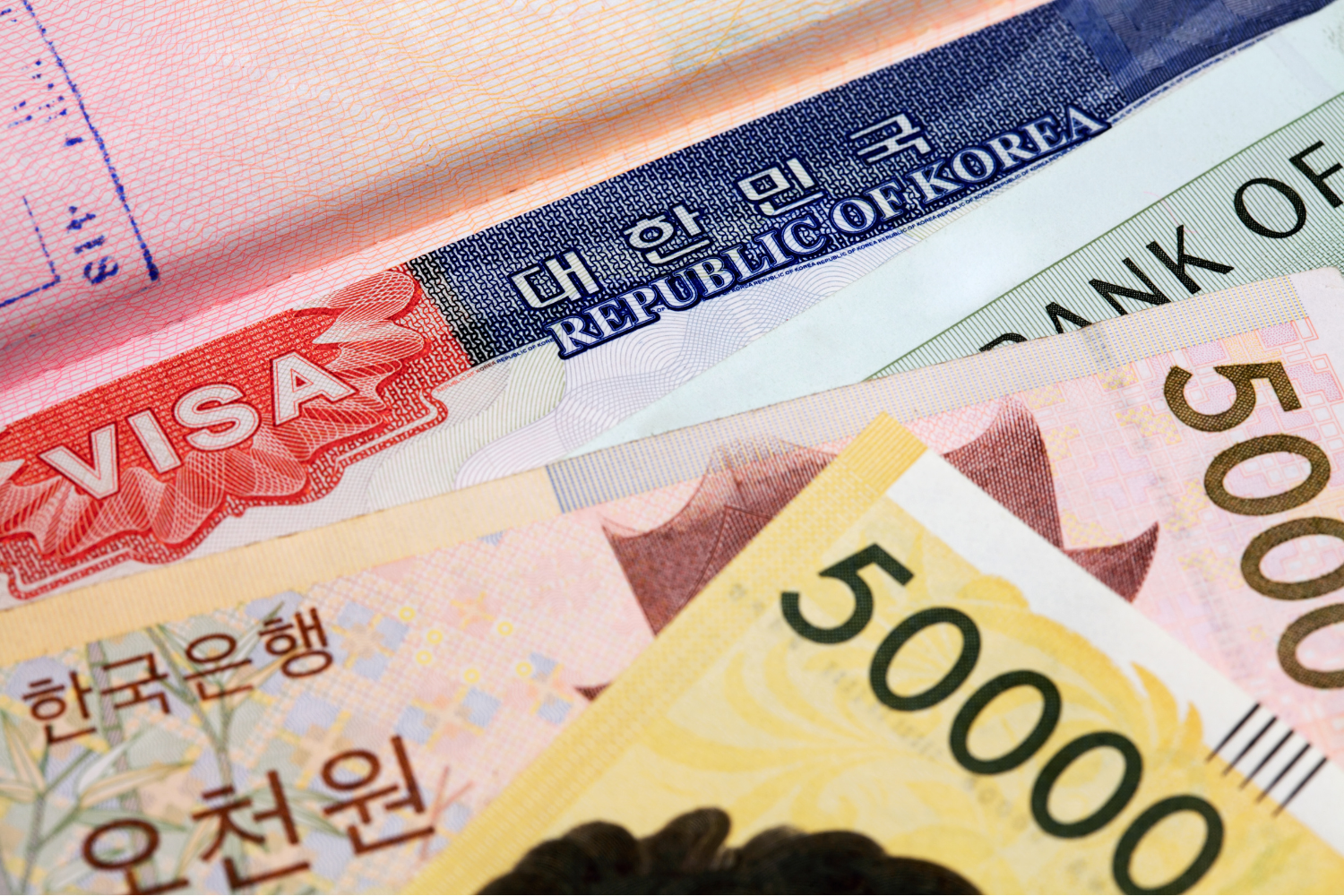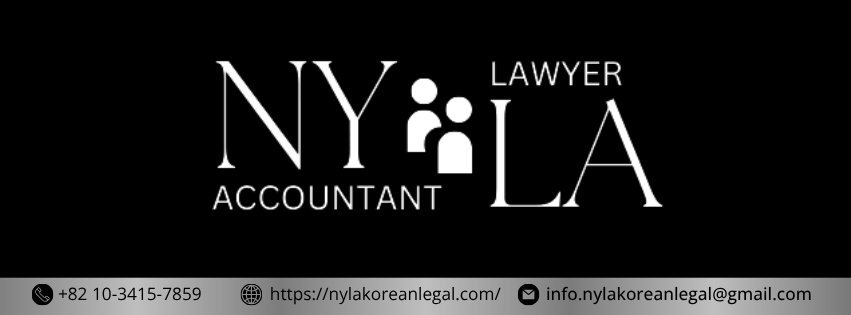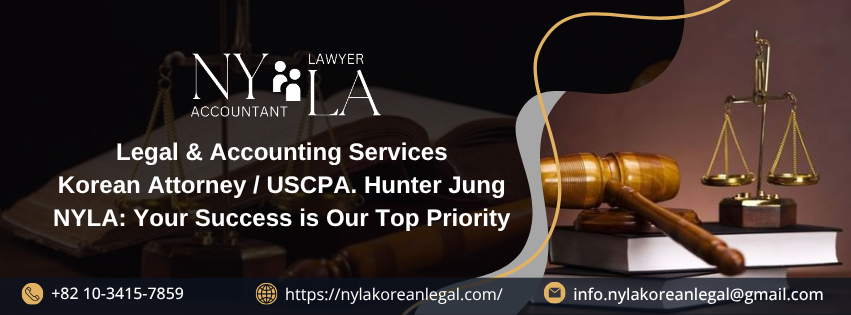Foreign Direct Investment in Korea (FDI) continues to be a driving force in the country’s economic growth. With Korea’s stable political environment, advanced infrastructure, skilled workforce, and strong legal framework, it has become a prime destination for international investors. In this article, we explore the key forms of Foreign Direct Investment in Korea, explain the legal thresholds, and offer insight into what makes Korea a top choice for foreign capital.
Summary
- 1. What is Foreign Direct Investment in Korea?
- 2. Acquisition of Equity Shares
- 3. Long-Term Loans
- 4. Contributions to Non-Profit Organizations (NPOs)
- 5. Reinvestment of Unappropriated Earned Surplus
- 6. Legal Framework and Government Incentives
- 7. Why Choose Foreign Direct Investment in Korea?
- 8. About NYLA – Korean Legal Office
1. What is Foreign Direct Investment in Korea?
Foreign Direct Investment in Korea is defined as an investment where a foreign individual or entity contributes a minimum of KRW 100 million and acquires at least 10% of the total shares in a domestic company. This benchmark ensures a tangible and ongoing economic relationship between the foreign investor and the Korean business. FDI is regulated by the Foreign Investment Promotion Act and is overseen by Korean authorities to ensure transparency and compliance.
The core types of Foreign Direct Investment in Korea include:
- Acquisition of equity shares in Korean companies
- Long-term loans from overseas parent companies
- Contributions to non-profit organizations
- Reinvestment of unappropriated earned surplus

One of the most common forms of Foreign Direct Investment in Korea is through the acquisition of equity shares. This form allows foreign investors to establish a lasting presence in the Korean market by holding a significant portion of a company’s voting rights.
If multiple foreign investors participate, each must individually invest at least KRW 100 million and hold 10% or more of the voting shares. These shares can be either new or pre-existing. Even if an investor owns less than 10%, the investment may still qualify as FDI if the investor appoints an executive or has influence in the management of the company.
3. Long-Term Loans
Long-term loans are another method for foreign investors to inject capital into Korean enterprises. This involves a loan of at least five years from an overseas parent company or an affiliated firm. To qualify as Foreign Direct Investment in Korea, the following conditions must be met:
- An initial equity investment has already been made.
- The average term of the loan is at least five years.
This form of investment is suitable for long-term projects that require sustained capital support, such as infrastructure development, technology upgrades, and research expansion.
4. Contributions to Non-Profit Organizations (NPOs)
Foreign investors may also contribute to Korean non-profit organizations. To qualify as FDI, the investment must be at least KRW 50 million and represent 10% or more of the total funding of the recipient NPO. Additionally, the NPO must meet strict criteria, such as:
- Having its own independent R&D facilities in science or technology fields.
- Employing at least five full-time researchers with relevant degrees and experience.
- Engaging in research and development aligned with the Korean Standard Industrial Classification.
In certain cases, contributions to NPOs that promote education, science, arts, and international cooperation can also be recognized as Foreign Direct Investment in Korea.
5. Reinvestment of Unappropriated Earned Surplus
Foreign Direct Investment in Korea can also occur through the reinvestment of unappropriated earned surplus. This reinvestment must serve specific purposes such as:
- Building new facilities
- Expanding existing operations
- Developing infrastructure or R&D centers
When a foreign-invested company reinvests its surplus earnings into the Korean market, the reinvested amount is calculated by multiplying the investment with the original foreign ownership ratio. This form supports long-term engagement and sustainable growth within Korea.

6. Legal Framework and Government Incentives
Korea provides an investor-friendly environment for foreign capital, backed by the Foreign Investment Promotion Act. The Korean government offers various incentives such as tax reductions, cash grants, and support with administrative procedures for qualifying investments.
Investors engaging in Foreign Direct Investment in Korea can also benefit from Korea’s extensive network of free trade agreements (FTAs), strategic geographical location in East Asia, and its reputation as a global technology leader.
7. Why Choose Foreign Direct Investment in Korea?
Choosing Foreign Direct Investment in Korea allows international businesses to:
- Access Asia’s fourth-largest economy
- Enter a tech-savvy, highly connected consumer market
- Collaborate with world-class companies and institutions
- Enjoy strong IP protection and business transparency
As Korea continues to innovate across industries like semiconductors, biotechnology, renewable energy, and digital services, it presents a fertile landscape for foreign investors seeking long-term returns.
Conclusion
Understanding the various forms of Foreign Direct Investment in Korea is crucial for any investor aiming to establish a solid footprint in this dynamic market. Whether through equity acquisition, long-term loans, contributions to NPOs, or reinvested profits, Korea offers a structured and promising environment for international investment. With its strategic advantages and government support, Korea remains one of the most attractive destinations for FDI in Asia in 2025 and beyond.
8. About NYLA – Korean Legal Office

■ NYLA – Your Trusted Legal Partner in Korea
At NYLA, we understand that the success of foreign businesses in Korea requires not only a solid business strategy but also reliable legal support. With a team of experienced Korean attorneys and legal professionals, NYLA provides tailored legal services for companies, investors, and individuals operating or planning to establish a presence in Korea.
We support our clients throughout the entire business journey with comprehensive services, including:
- Legal consultation on company establishment, taxation, and immigration;
- Advice on commercial real estate, franchising, and product distribution;
- Support in human resources, marketing, and business strategy.
In addition to legal advisory, NYLA also represents clients in civil litigation cases related to business, labor, marriage, family, and inheritance to ensure their rights and interests are fully protected.
■ Contact NYLA

If you’re a foreign business or individual looking for a reliable legal partner in Korea, NYLA is here to help. We are committed to delivering effective, practical, and personalized legal solutions for every client.
With a proven track record of assisting hundreds of international clients, our team is equipped to help you navigate complex legal challenges—whether it’s commercial disputes, contract issues, or foreign investment guidance.
Don’t let legal matters hold you back. Let NYLA be your trusted guide in the Korean market.
■ Get in touch with NYLA for expert legal support
| Website: https://nylakoreanlegal.com/
FB: https://www.facebook.com/nyla.koreanlegal Tiktok: https://www.tiktok.com/@nylakoreanlegal Youtube: https://www.youtube.com/@NYLA-xd8qx Email: info.NYLAkoreanlegal@gmail.com SĐT: +82 10-3415-7859 |
 |






















































